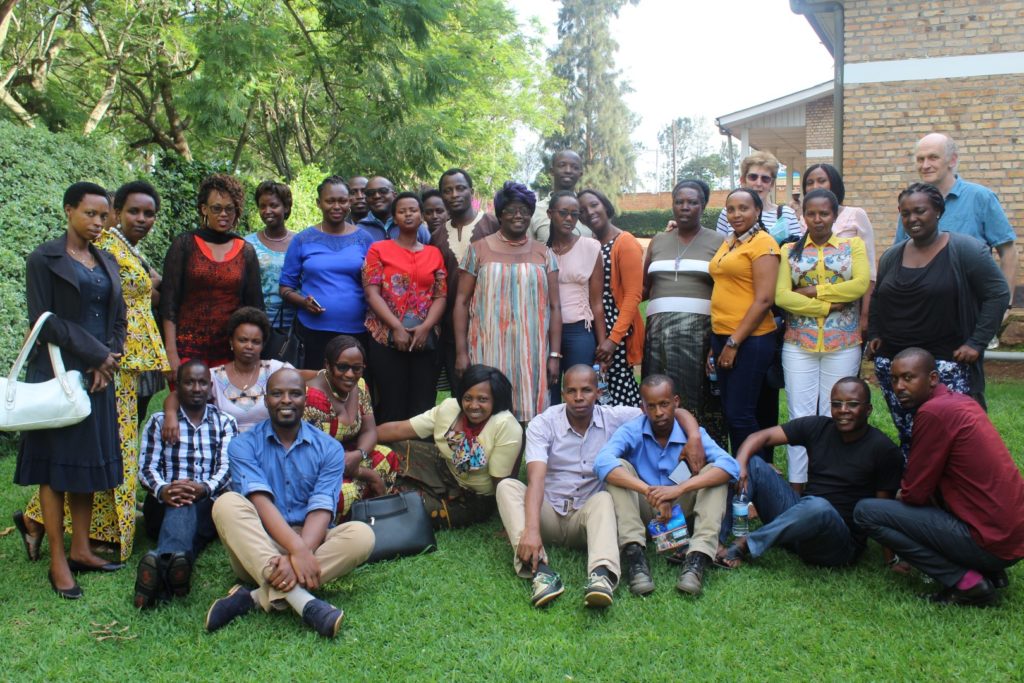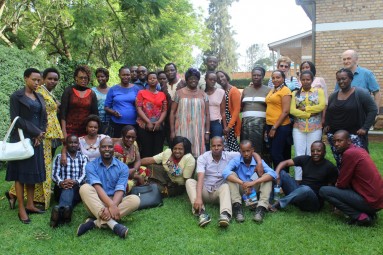
Last week 30 Rwandese counsellors and psychologists took part in training in Group Analysis. This is a particular branch of therapy that looks at group work and group dynamics. The majority of the training participants work for AVEGA, with other participants working for other survivors’ organizations or organisations doing group work with vulnerable youth, people living with HIV, reconciliation work and members of the Rwandan community.
The 5 days training is the 2nd workshop to take place this year, with two more planned in 2017. This will lead to participants being awarded an internationally recognized certificate on completion of the ‘Foundation Course in Group Analysis’ awarded by the Institute of Group Analysis in the UK. http://www.groupanalysis.org/ It is the first time the Institute of Group Analysis has expanded its course outside of Europe and South Africa and we are very thankful for their support and flexibility in being able to adapt a programme to fit the Rwandan context.

Three trainers; Justin Phipps, Anne Morgan and MJ Maher are visiting Rwanda from the UK and South Africa to facilitate the training. It involves some theoretical teaching but more importantly, the participation in experiential groups so that the participants can learn exactly what it is like to be part of a therapeutic group themselves. Participants have also had the opportunity to share ideas and learning from their day to day work and discuss the challenges of therapeutic work when surrounded by painful stories and emotions every day. This is especially important when counsellors and psychologists themselves will often have their own stories related to the 1994 Rwandan genocide against the Tutsi but have often not had the opportunity to share them and receive support for themselves as they are too busy helping others.
This training is a very important step to improving participants’ skills and abilities in group work; skills that can be transferred to any kind of therapeutic group. Group work in counselling is crucial as it allows participants to meet others in a similar situation and realize they are not the only one living with a certain challenge as well as create peer support networks that can continue once the counsellor or psychologist has left or the programme comes to an end. Groups are also an effective use of time and money compared to individual work as one counsellor can support a larger number of beneficiaries at the same time.
